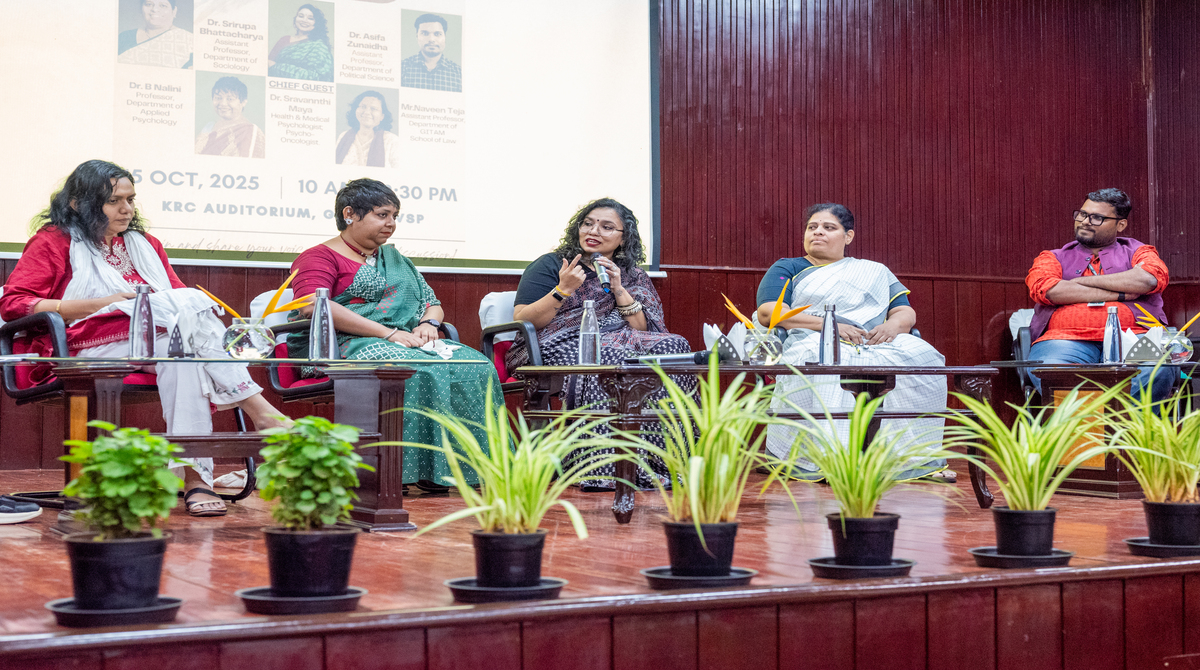Legal Recognition Alone Cannot End Social Prejudice, Experts Say
Legal recognition of queer identities cannot, by itself, erase centuries of social prejudice, experts said at a panel discussion on “Indian Queer Realities” organised by GITAM Student Life on Thursday.
“Laws are only part of the solution. True equality requires social acceptance and awareness,” said Dr. B. Nalini, Professor of Applied Psychology at GITAM Deemed to be University.
The panel brought together scholars from law, political science, sociology, and psychology, including Naveen Teja, Dr. Asifa Zunaidha, and Dr. Sravanthi Maya, to examine the historical, legal, and social realities of queer life in India.
Dr. Srirupa Bhattacharya, Assistant Professor of Sociology, highlighted the urban-rural divide. “Urban areas are increasingly accepting, but rural regions continue to lag due to traditional norms, stigma, and lack of awareness. Bridging this gap requires education, community engagement, and efforts to normalise queer identities,” she said.
Panelists also traced India’s rich history of gender diversity. Transgender individuals, historically known as Hijras, held respected roles as political advisors, administrators, generals, and royal guards, and played central roles in socio-religious ceremonies. Colonial policies, particularly the Criminal Tribes Act of 1871, disrupted these communities, branding them “habitually criminal” and imposing surveillance and movement restrictions.
Despite legal advances, including the 2014 Supreme Court ruling recognising transgender persons as a legal “third gender,” systemic discrimination persists. Experts cautioned that legal recognition alone is insufficient to remove social stigma.
Concluding the session, the panel called for continued advocacy, inclusive policies, and education to ensure dignity and equality for queer citizens. “The younger generation offers hope, showing increasing solidarity with queer communities,” said Dr. Sravanthi Maya.



